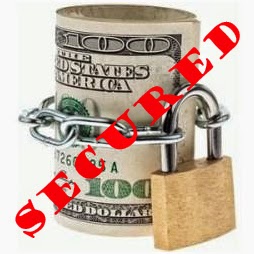There are many banks and financial institutions, which provide personal loans. All of them have their own terms and conditions. To get the best deal on your personal loan, you should make sure that you contact and consult many lending institutions as possible. Tell them about your financial requirements and situation. Get a quote from them and check whether you can repay the personal loan easily.
The banks will provide you with a lump sum, when you complete the formalities to get the loan. That money could be used to fund your needs. Amount will be recovered from your bank will cover the debt, plus the interest charged on it during the repayment period. The longer the payment period will be less than the interest to be paid on personal loans.
A personal loan is the amount that any adult individual borrows to meet its financial needs. There are many goals that each individual can take a personal loan. Personal loans can be used to provide funds to purchase a car, pay for your dream cruise or that remote island adventure, buy a boat, pay mortgage arrears, finance your home improvement plan, the payment of benefits or pay credit card bills etc. Personal loans can actually be taken to partially large financial emergencies you can think of.
Personal loans are preferred because of their versatility. The two most common types of secured personal loans and unsecured personal loans. Options for secured and unsecured personal loans related to the fact whether you can offer the property or assets as collateral for loans. These loans are discussed below in detail.
The loan is secured against some immovable or movable asset is called a secured loan. These loans are easy to get because the lending institutions feel comfortable while giving them. The reason for their comfort is the assurance you give. Personal secured loans have lower interest and payment options easy. Lending institutions have no hesitation in giving a large loan against high value collateral. Generally, secured personal loans are given against one's own home, but if you have put your house on a mortgage you can still take advantage of personal loan secured against the proportion of your own home.
Banks and financial institutions often overlook negative credit ratings, CCJ, defaults or pending debts since they get collateral for their loans. Personal secured loans are available to individuals within 30 days of grant applications.
In unsecured personal loan amount granted by banks or financial institutions are not secured by collateral. Lending institutions lend solely on the credit of the person concerned. This type of loan has a greater element of risk for the lender, thus bringing a greater degree of interest and is often followed by the background over the financial health of the individual. The loan amount can start from as little as £500 and go up to £25,000. Because unsecured loans, lenders wary of giving large amounts as loans. Unsecured personal loans are good for tenants, people who do not have their homes and those who can not offer anything as collateral.
In case the borrower defaults on payment, the lender will use a credit agreement and take legal help in recovering the outstanding amount. Before jumping to the decision, the interest rate charged should be given a serious look while taking a personal loan. The amount of interest you will be charged, will ultimately decide what you paid to the bank. Lenders have a legal obligation to tell them will charge you interest on your loan. APR ( Annual Percentage Rate ) shows the real interest rate the bank will be charged from you. The lower the APR, the better it will be for the borrower. The borrower is also advisable to investigate whether the interest charged by banks is fixed, or floating one. Ask your bank about prepayment penalties and other costs incurred in getting a loan.
Each financial institution has its own way of asking about the borrower. Some may want to ask a personal question, get a feel of what you will do with the amount of the loan and how you want to build your future before any loan. Be prepared to answer these questions. Every loan that is taken must be repaid. The banks and financial institutions from a portion of their profits with the interest you pay . This is fine if all goes as planned, and you pay the loan on time without any hiccups. But life is known for its glorious uncertainties. The plan failed, and something catastrophic disasters come often thwart our plans. This may lead to payment problems. It happens and one should not get panic in such situations. If you get into a situation like that, the first thing you should do is talk to your lender. They are interested in recovering their money, a mutually agreeable solution can be reached, which is less tense for you to manage and appears promising for the lender as well.

















